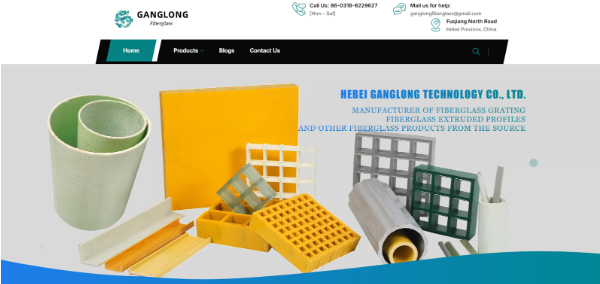Tech
2607:fb91:15af:7350::62 – Unlocking the Structure and Significance of an IPv6 Address

In today’s rapidly expanding digital landscape, the demand for IP addresses has reached unprecedented levels. With billions of devices connecting to the internet every day, the limitations of the traditional IPv4 addressing system became evident. The result? A shift to IPv6, the next-generation internet protocol designed to meet the growing need for more addresses, better security, and enhanced efficiency. This article explores the IPv6 address, specifically focusing on the unique address 2607:fb91:15af:7350::62, delving into its structure and significance.
Understanding the Growing Demand for IP Addresses
As the number of internet-connected devices exploded with the rise of smartphones, smart homes, and the Internet of Things (IoT), the limitations of IPv4 became clear. IPv4, created in the 1980s, supports around 4.3 billion addresses—a number that seemed sufficient at the time but quickly proved inadequate. To combat this, IPv6 was introduced, providing a virtually limitless pool of IP addresses.
Introduction to IPv6
IPv6, or Internet Protocol version 6, is the solution to the exhaustion of IPv4 addresses. While IPv4 uses a 32-bit address format, limiting the number of possible unique addresses, IPv6 utilizes a 128-bit system. This dramatically expands the number of available addresses, ensuring the internet can continue to grow and accommodate more devices.
This article focuses on 2607:fb91:15af:7350::62, a specific IPv6 address, and how it demonstrates the importance of this new protocol. We will break down the structure of this address and highlight the significance of its components in organizing and managing internet-connected devices.
What is IPv6?
IPv6, short for Internet Protocol version 6, is the latest iteration of the IP addressing system. It was developed to address the limitations of its predecessor, IPv4, which could no longer keep up with the growing demand for unique IP addresses. Here are the key differences between IPv4 and IPv6:
- IPv4: Uses a 32-bit address format, which allows for approximately 4.3 billion addresses. Example: 192.168.1.1.
- IPv6: Uses a 128-bit address format, allowing for around 340 undecillion addresses. Example: 2607:fb91:15af:7350::62.
Benefits of IPv6
- Larger address space: IPv6’s 128-bit system provides vastly more addresses than IPv4, future-proofing the internet for generations.
- Improved security: IPv6 includes built-in IPsec (Internet Protocol Security), enhancing protection against threats like data tampering and eavesdropping.
- Better efficiency: IPv6 simplifies the routing of internet traffic and supports auto-configuration, making it easier to manage large networks.
IPv6 Addressing Structure
IPv6 addresses, including 2607:fb91:15af:7350::62, are written in hexadecimal notation and consist of eight groups of four hexadecimal digits, separated by colons. However, multiple consecutive groups of zeroes can be shortened using double colons (::). Let’s break down the structure of an IPv6 address:
Components of an IPv6 Address
- Network Prefix: The first part of the address is used to identify the network or subnet. It is similar to the network portion in IPv4.
- Subnet ID: This component helps identify sub-networks within a larger network, allowing for more efficient organization and management.
- Interface ID: The final part of the address uniquely identifies a network interface on a device, ensuring that each device connected to the network has a unique IP.
Hexadecimal Notation
IPv6 addresses are written in hexadecimal (base-16) rather than decimal, which was used in IPv4. This allows for more compact representation and includes the digits 0-9 and the letters A-F.
For example, the address 2607:fb91:15af:7350::62 can be expanded to its full form: 2607:fb91:15af:7350:0000:0000:0000:0062.
The Significance of 2607:fb91:15af:7350::62
A Unique Identifier
The address 2607:fb91:15af:7350::62 serves as a globally unique identifier for a specific device on the internet. Just like a mailing address ensures your letters reach the right recipient, this IPv6 address ensures that data packets reach the correct device across the internet.
Network Prefix: 2607
The network prefix 2607identifies the network or ISP (Internet Service Provider) to which the device belongs. This portion of the address determines the device’s routing on the internet. Every organization, whether a company, government, or ISP, is assigned a unique network prefix to distinguish its devices.
Subnet ID: 15af:7350
The subnet ID 15af:7350 helps in further dividing the network into smaller sections. Subnetting is crucial for managing large networks efficiently. By breaking down a larger network into smaller, manageable sub-networks, administrators can ensure better performance and security.
Interface ID: ::62
The interface ID ::62 is unique to the device’s specific network interface (such as an Ethernet port or Wi-Fi adapter). This ensures that even within the same network or subnet, every device has a unique identifier, allowing for proper communication and data routing.
IPv6 Implementation and Challenges
Adoption Rate
While IPv6 offers a robust solution to the limitations of IPv4, its adoption has been gradual. Many organizations still rely on IPv4, and the transition has been slow due to factors such as:
- Legacy systems: Many older systems and devices are not compatible with IPv6, making the switch expensive and time-consuming.
- Network infrastructure: Reconfiguring entire networks to support IPv6 is a complex and resource-intensive process.
However, the shift is happening. According to Google, about 35% of users worldwide access the internet over IPv6, and this number continues to rise.
Dual Stack and IPv6-Only Networks
In the interim, many networks use a dual-stack approach, meaning they support both IPv4 and IPv6 addresses. This ensures compatibility with older systems while gradually transitioning to IPv6-only networks.
- Dual stack: Devices and networks can use both IPv4 and IPv6 simultaneously.
- IPv6-only networks: Some new networks are configured to use only IPv6, benefiting from its enhanced features without the constraints of IPv4.
The Transition from IPv4 to IPv6
The migration from IPv4 to IPv6 is ongoing, with organizations gradually adopting the new protocol as they update their infrastructure. IPv6 offers numerous advantages, including better scalability, security, and performance, but full transition will take time.
Future of IPv6
IPv6-Based Services and Applications
The widespread adoption of IPv6 opens the door to new services and technologies. Its vast address space is particularly well-suited for emerging technologies like the Internet of Things (IoT), where millions of devices need unique addresses to communicate.
- IoT: From smart thermostats to connected cars, IoT devices will thrive in an IPv6 world, where every gadget can have a unique address.
- Future technologies: As the world becomes more interconnected, IPv6 will support the development of new applications and services that require large-scale IP address allocation.
IPv6 Security
While IPv6 offers built-in security features like IPsec, it also introduces new challenges. Many organizations are still learning how to configure IPv6 networks securely. To protect IPv6 networks, administrators must:
- Ensure that firewalls are properly configured for IPv6 traffic.
- Educate staff on the differences between IPv4 and IPv6 security practices.
- Implement IPsec to secure communication between devices.
YOU MAY ALSO LIKE
Choosing The Right Managed IT Provider Near Dallas, Tx—A Comprehensive Guide
Conclusion
In this article, we explored the structure and significance of the IPv6 address 2607:fb91:15af:7350::62, highlighting the importance of IPv6 in addressing the limitations of IPv4. We discussed its unique role as an identifier for internet-connected devices, the structure of an IPv6 address, and the benefits of adopting IPv6 in today’s connected world.
As we move further into an age of interconnected devices and advanced technologies, understanding and embracing IPv6 will be crucial. The address 2607:fb91:15af:7350::62 is just one example of how the future of the internet is being shaped by this powerful protocol.
FAQs
1. What is the meaning of the IPv6 address 2607:fb91:15af:7350::62?
This is a specific IPv6 address that uniquely identifies a device on the internet. The components include a network prefix, subnet ID, and interface ID.
2. How does IPv6 improve security compared to IPv4?
IPv6 includes built-in security features like IPsec, which encrypts and authenticates data, making it harder for attackers to intercept.
3. What is the difference between IPv4 and IPv6?
The main difference is the address space. IPv6 uses 128-bit addresses, allowing for far more unique addresses compared to IPv4’s 32-bit system.
4. What is a dual-stack network?
A dual-stack network allows for both IPv4 and IPv6 to be used simultaneously, ensuring compatibility during the transition to IPv6.
5. Why is the adoption of IPv6 slow?
The slow adoption of IPv6 is due to the cost and complexity of upgrading infrastructure, as well as compatibility issues with older devices.
Tech
Environmental Benefits of Chopped Strand Mat

Key Benefits
As industries increasingly focus on sustainability, the environmental impact of materials used in manufacturing processes has become a critical consideration. Chopped Strand Mat (CSM) is no exception, and its environmental benefits, including recyclability and eco-friendly properties, are essential for its growing adoption in sectors such as automotive, marine, construction, and renewable energy. When compared to other traditional materials, CSM stands out for several key reasons, from its durability and lower environmental footprint during production to its potential for recycling and reuse. This article explores the environmental benefits of CSM and how it contributes to more sustainable manufacturing practices.
Recyclability of Chopped Strand Mat
One of the primary environmental advantages of Chopped Strand Mat (CSM) is its potential for recycling. While fiberglass, including CSM, is often considered difficult to recycle due to its complex composite nature, advancements in recycling technologies are making it increasingly feasible. The ability to recycle CSM not only contributes to reducing waste but also supports the growing demand for sustainable materials across various industries, including the production of cable ladder.
Cable ladder, which are widely used in electrical and communication systems to support and organize cables, can also benefit from the recyclability of CSM. Traditionally, cable ladders were made from metals like steel or aluminum, which required energy-intensive processes to manufacture and were subject to corrosion. However, with the shift toward fiberglass-based composites such as CSM, the potential for recycling these products at the end of their life cycle has increased.
- Mechanical Recycling: CSM, like other fiberglass-based products, can be processed through mechanical recycling methods. This involves breaking down the fiberglass composite into its individual components, such as glass fibers and resins, which can then be reused. Mechanical recycling of CSM typically results in the glass fibers being cleaned, repurposed, and used in the production of new composite materials, which helps reduce the need for virgin raw materials.
- Chemical Recycling: A more advanced form of recycling, chemical recycling involves breaking down the resin binder used in CSM into its chemical components, which can then be reused in the creation of new products. This process helps minimize waste and can significantly reduce the environmental impact of production, especially when the resin is derived from renewable sources.
- Circular Economy: The recyclability of CSM is in alignment with the principles of a circular economy, where materials are continuously reused, reducing the need for landfilling and conserving natural resources. As industries adopt more circular practices, the ability to recycle materials like CSM becomes an increasingly important factor in its sustainability.
Reduction in Material Waste
The manufacturing process of CSM generates minimal waste compared to many other traditional materials. The fibers used in CSM are carefully controlled during the cutting process, and excess materials can often be reused, either in the same production cycle or in the creation of other fiberglass products. This reduces the overall material waste and ensures a more efficient use of raw materials.
- Zero Waste Initiatives: Many manufacturers of fiberglass products, including CSM, have adopted zero-waste initiatives to further minimize environmental impact. This includes reusing offcuts and defective mats during the production process or sending waste materials to specialized facilities for recycling. By reducing waste at every step of the manufacturing cycle, CSM helps support environmentally responsible manufacturing.
Energy Efficiency and Reduced Carbon Footprint
The production of Chopped Strand Mat is energy-intensive but generally more efficient than the manufacturing of many other materials, particularly metals like steel or aluminum. CSM is primarily made from glass fibers, which are derived from sand and other natural resources. The energy required to produce glass fibers and process them into CSM is relatively low compared to the extraction and processing of metals, making CSM a more energy-efficient alternative in certain applications.
- Lower Embodied Carbon: The energy required to produce fiberglass products such as CSM is significantly lower than that for materials like aluminum or steel, which require high-temperature furnaces for production. This results in a lower embodied carbon, making CSM a more sustainable choice in industries focused on reducing carbon emissions.
- Durability and Longevity: CSM products are incredibly durable and resistant to environmental factors like moisture, UV radiation, and temperature changes. This long lifespan reduces the need for frequent replacements, which in turn lowers the overall carbon footprint associated with manufacturing, transportation, and disposal. For example, CSM is often used in the construction of boat hulls and automotive parts, both of which are subject to demanding conditions. The longevity of these materials means that fewer resources are consumed over time.
Non-toxic and Low Environmental Impact
Fiberglass, the core material used in Chopped Strand Mat, is non-toxic and does not release harmful substances into the environment during its manufacturing or use. Unlike some synthetic polymers and resins, which may contain harmful chemicals or release volatile organic compounds (VOCs), fiberglass is inherently safer for both human health and the environment.
- Safer for Workers: The production of fiberglass products like CSM does not involve the same hazardous chemicals that are found in many other composite materials. This reduces the risk of exposure to harmful substances for workers in the manufacturing process, contributing to a safer and more sustainable working environment.
- Low VOC Emissions: Many types of resins used in composite materials release volatile organic compounds (VOCs) during the curing process, contributing to air pollution. However, many CSM manufacturers are increasingly using low-VOC or VOC-free resins, making the production of CSM more eco-friendly. These advances reduce the environmental footprint and make the manufacturing process safer for both workers and the surrounding environment.
Lightweight Properties Leading to Reduced Energy Consumption
Chopped Strand Mat is lightweight compared to traditional building materials like metals or concrete. This characteristic has several environmental advantages, particularly in industries such as transportation and construction. For example:
- Automotive Applications: In the automotive industry, lighter materials lead to improved fuel efficiency and reduced carbon emissions. The use of CSM in vehicle manufacturing can help reduce the weight of cars, trucks, and other vehicles, ultimately contributing to lower fuel consumption and a smaller carbon footprint.
- Marine and Aerospace: Similarly, in marine and aerospace industries, the use of lightweight fiberglass materials like CSM helps reduce the energy required to propel boats and aircraft. This leads to less fuel consumption and reduced environmental impact during operation.
- Cable Ladders and Fiberglass Sheets: In both cable ladder systems and fiberglass sheets, the use of non-toxic materials ensures that no harmful emissions are released during production or usage. This is especially important in industries where worker safety and environmental health are top priorities, such as in the construction of electrical infrastructure or building facades.
Biodegradable and Natural Fiber Alternatives
While CSM itself is not biodegradable, it can be combined with natural fiber alternatives to improve its eco-friendly properties. For example, manufacturers are exploring the combination of CSM with bio-based resins or natural fibers like hemp, flax, or jute. This hybrid approach can result in products that are more biodegradable or have reduced environmental impact at the end of their lifecycle.
- Bio-composites: The development of bio-composites using natural fibers and bio-resins is an emerging trend in the CSM market. These bio-composites are designed to be more sustainable, offering a more eco-friendly alternative to traditional fiberglass composites. Such advancements contribute to a more sustainable lifecycle for CSM products.
Tech
The Growing Market for Audio Jammers

The Market Dynamics of Audio Jammers and Their Evolving Role
The market for audio jammers is experiencing steady growth due to increasing concerns about privacy, security, and surveillance. These devices, designed to disrupt unwanted audio signals, are gaining traction across a wide range of industries, including corporate, government, military, and personal privacy. As surveillance technology continues to advance, the market for audio jammers is expanding, with additional innovations such as Drone Jammer Gun and Drone RF Detection contributing to a more sophisticated approach to counter-surveillance.
Key Drivers of Market Growth
Rising Privacy Concerns
With the growing prevalence of surveillance technologies, including hidden microphones and audio-recording devices, the demand for audio jammers has increased. Individuals and organizations are increasingly concerned about unauthorized eavesdropping, particularly in environments where sensitive or confidential information is exchanged. This has driven the adoption of audio jammers in sectors such as corporate boardrooms, legal offices, and government facilities, where protecting information from external threats is paramount.
Increased Use of Surveillance Technology
The proliferation of consumer and professional surveillance devices, such as hidden microphones, drones with audio capabilities, and remote listening systems, has expanded the market for audio jammers. As more people and organizations become aware of the potential risks posed by surveillance technology, the need for countermeasures like audio jammers is rising.
Government and Defense Applications
Government agencies and defense contractors have been major adopters of audio jammers to protect against espionage and cyber-attacks. These sectors require robust security measures to safeguard sensitive information and prevent unauthorized interception of communications. Audio jammers are also used by military and intelligence agencies in the field to thwart enemy surveillance and maintain operational security.
Growing Security Concerns in Business and Personal Privacy
In addition to the government and defense sectors, businesses, especially those involved in intellectual property (IP) and confidential dealings, are adopting audio jammers to protect their trade secrets. High-profile industries, such as technology, pharmaceuticals, and finance, are increasingly concerned about information leaks, leading to greater demand for privacy-enhancing tools. In personal privacy, individuals concerned about eavesdropping, such as in their homes or personal spaces, are also contributing to market growth.
Key Applications of Audio Jammers
Corporate and Legal Sectors
In the corporate world, audio jammers are primarily used in boardrooms, meeting spaces, and executive offices where confidential discussions take place. These devices help prevent unauthorized audio recording and eavesdropping. Legal professionals, especially those handling sensitive client cases or confidential legal documents, also use audio jammers to ensure their conversations remain private and secure.
Government and Military
Government agencies and military personnel utilize audio jammers as part of their security protocol. These devices are particularly important for preventing espionage and surveillance during high-level diplomatic talks, intelligence operations, and defense missions. Audio jammers are used in embassies, government offices, and military installations to maintain confidentiality and operational security.
Personal Privacy
With the increasing concern about personal privacy, individuals are increasingly investing in audio jammers for their homes or vehicles. These devices are used to block any potential surveillance from hidden microphones or listening devices, providing individuals with peace of mind in their personal spaces. Additionally, individuals who are subject to unwanted attention, such as public figures or whistleblowers, may use audio jammers to protect their privacy.
Events and Conferences
At high-profile events, such as business conferences, product launches, or political summits, the use of audio jammers has become more common. These events often attract journalists, competitors, or other parties who may attempt to intercept sensitive discussions or gain access to proprietary information. Audio jammers are employed in such settings to safeguard against unauthorized recording and eavesdropping.
Challenges in the Audio Jammer Market
Legal and Regulatory Issues
One of the significant challenges facing the audio jammer market is the complex legal landscape. The use of audio jammers is heavily regulated in many countries, and in some places, it is outright illegal to use them, particularly in public spaces or areas with critical communications infrastructure. The risk of fines or legal penalties for using jammers in unauthorized locations can deter potential users and create barriers to market growth. The legal framework surrounding audio jammers varies widely across regions, so users must be aware of local regulations to avoid violations.
Health and Safety Concerns
Another challenge with audio jammers, especially those operating at ultrasonic frequencies, is the potential health risks they pose. Prolonged exposure to high-frequency sounds can cause discomfort or even hearing damage, particularly for sensitive individuals or animals. Some audio jammers can also interfere with medical devices, such as hearing aids or implantable devices, raising concerns about their safe usage in environments where vulnerable individuals may be present.
Technological Limitations
While audio jammers are effective in many scenarios, they are not foolproof. Advanced surveillance technologies, such as those using encrypted communications or spread-spectrum techniques, can sometimes bypass traditional jamming methods. Similarly, Drone RF Detection and Drone Jammer Gun may struggle with more sophisticated drones that use advanced communication protocols or operate at high altitudes. Continuous innovation is required to improve the effectiveness of these devices and address evolving surveillance technologies.
Consumer Awareness and Adoption
Despite the growing concern about privacy, there remains a lack of widespread awareness about audio jammers and their effectiveness. Many consumers and businesses are unaware of the options available to protect themselves from audio surveillance. Educational efforts and greater visibility of the benefits of audio jammers are necessary to accelerate adoption in both the consumer and enterprise markets.
Future Outlook for the Audio Jammer Market
The future of the audio jammer market looks promising as privacy concerns continue to grow across both personal and professional domains. As the technology behind audio jammers improves, and as more people become aware of the need to protect their conversations, the demand for these devices is expected to rise.
The integration of advanced technologies like Drone Jammer Guns and RF Detection Systems with audio jammers could further enhance their effectiveness, enabling users to protect against both physical and digital surveillance. With the increasing risk of cyber threats and data breaches, the need for robust counter-surveillance tools will likely drive further innovation in the audio jammer market.
Furthermore, as regulatory bodies adjust their stance on the use of jamming devices, more balanced and standardized regulations may emerge, which could help drive growth in the market by allowing greater usage in controlled environments.
Tech
Top Technology Trends in Accounting and Financial Services

Accounting and financial services are transforming with the rise of new technologies. Three significant trends are shaping this change. First, artificial intelligence is becoming a game changer. It streamlines processes, reduces errors, and boosts efficiency. Second, blockchain technology is gaining traction. It offers transparency and security in transactions, which is invaluable. Lastly, cloud-based solutions are making data access and collaboration easier than ever. Businesses like Padgett Business Services are leveraging these innovations to enhance their offerings. They are not alone in recognizing the potential. Many financial institutions are already integrating these technologies. This shift does not just mean quicker services. It also means more accurate and reliable outcomes. Understanding these trends is essential for staying competitive. They are not just fleeting changes. These are foundational shifts that will continue to reshape how accounting and financial services operate. Embracing them can pave the way for sustained growth and improved service delivery.
Artificial Intelligence in Accounting
Artificial intelligence (AI) is revolutionizing accounting. It automates repetitive tasks like data entry and categorization. This frees up accountants to focus on more strategic activities. AI can also analyze large volumes of data quickly. This leads to better decision-making based on accurate insights. Moreover, AI helps in detecting anomalies and potential fraud. It constantly monitors transactions and flags unusual patterns.
A simple example of AI in action is automated bookkeeping. Systems can now learn from transaction history. They predict and apply the correct account codes, reducing manual intervention. AI-powered chatbots are also common. They assist with customer inquiries, providing instant responses and improving customer satisfaction.
Blockchain Technology’s Impact
Blockchain is another vital trend. It creates a secure and transparent ledger of transactions. This is crucial for financial services, where trust and accuracy are paramount. Blockchain reduces the risk of errors and fraud. Once a transaction is recorded, it cannot be altered. This feature makes auditing simpler and more reliable.
For example, consider cross-border payments. Traditional methods can take days, but blockchain provides near-instantaneous transfers. This speed benefits both individuals and businesses. They enjoy reduced costs and improved cash flow.
According to the Federal Reserve, blockchain has the potential to improve the efficiency of payment systems. It is not yet widely adopted, but its advantages are clear. Gradually, more institutions are exploring its use in various applications beyond payments.
The Rise of Cloud-Based Solutions
Cloud computing is changing how accounting services are delivered. It offers several benefits over traditional methods. First, it allows real-time access to financial data from anywhere. This flexibility is essential in today’s fast-paced world. Second, cloud solutions enable seamless collaboration. Teams can work on the same documents simultaneously, improving efficiency.
Security is often a concern with cloud solutions. However, providers invest heavily in ensuring data protection. Features like encryption and multi-factor authentication safeguard sensitive information.
A popular application of cloud technology is accounting software. Solutions like QuickBooks Online and Xero offer cloud-based services. They eliminate the need for physical servers and regular software updates. These platforms also integrate with various apps, providing a comprehensive financial management ecosystem.
Comparison Table: Traditional vs. Modern Accounting Technologies
| Aspect | Traditional Accounting | Modern Accounting Technologies |
| Data Entry | Manual | Automated with AI |
| Data Access | Location-bound | Cloud-based, accessible from anywhere |
| Transaction Security | Centralized | Blockchain-enhanced |
| Collaboration | On-site | Online, real-time |
| Error Detection | Manual audits | AI-driven monitoring |
Future Outlook
The integration of these technologies is just the beginning. As they evolve, they will further transform the landscape. Staying informed on developments is crucial. For instance, the National Institute of Standards and Technology regularly updates its guidelines on cybersecurity, which is vital as more operations move online.
Innovation in accounting and finance is not slowing down. Technologies like machine learning and predictive analytics are on the horizon. They promise even greater advancements. Businesses that stay ahead of these trends will not only survive but thrive in this dynamic environment.
-

 Home Improvement6 months ago
Home Improvement6 months agoEssential Drain Cleaning Tips for Brampton Residents
-

 Fashion11 months ago
Fashion11 months agoAttractive Beach Dresses: Elevate Your Look with These Ideas
-

 Entertainment10 months ago
Entertainment10 months agoNetnaija: Your One-Stop Shop for Free Movies in Africa
-

 Pets10 months ago
Pets10 months agoPawsitively Perfect: The Types of Dog Harness Bundle for Your Furry Friend
-

 News10 months ago
News10 months agoWhat Are the Biggest Challenges in Marine Construction Projects in Australia?
-

 Health11 months ago
Health11 months agoUnderstanding Ftmç: Gender-Affirming Surgery
-

 Business11 months ago
Business11 months agoHow Professional Concrete Cleaning Wins Repeat Business
-

 Entertainment12 months ago
Entertainment12 months agoUnlocking Cinematic Pleasures: A Comprehensive Look at Rebahin, the Free Movie Streaming Haven
















